Number comparison Normal Math Worksheets for Ages 6-8
5 filtered results
-
From - To
Enhance your child's math skills with our engaging Number Comparison Normal Math Worksheets, designed specifically for kids ages 6-8. These interactive worksheets encourage young learners to explore and master the concept of comparing numbers through fun exercises. Kids will build their confidence in identifying greater than, less than, and equal to relationships, laying a solid foundation for future math concepts. Each worksheet is beautifully illustrated, making learning enjoyable and effective. Perfect for classroom activities or at-home practice, these resources help children develop critical thinking skills while fostering a love for math. Start your child’s math journey today with our thoughtfully crafted worksheets!
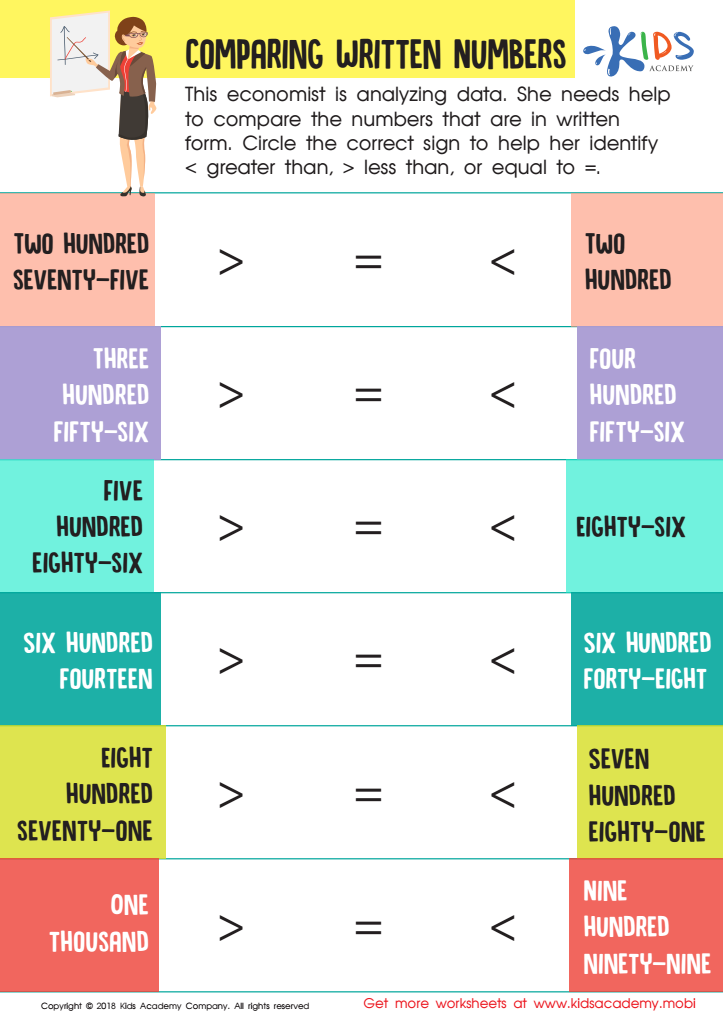

Comparing Written Numbers Worksheet
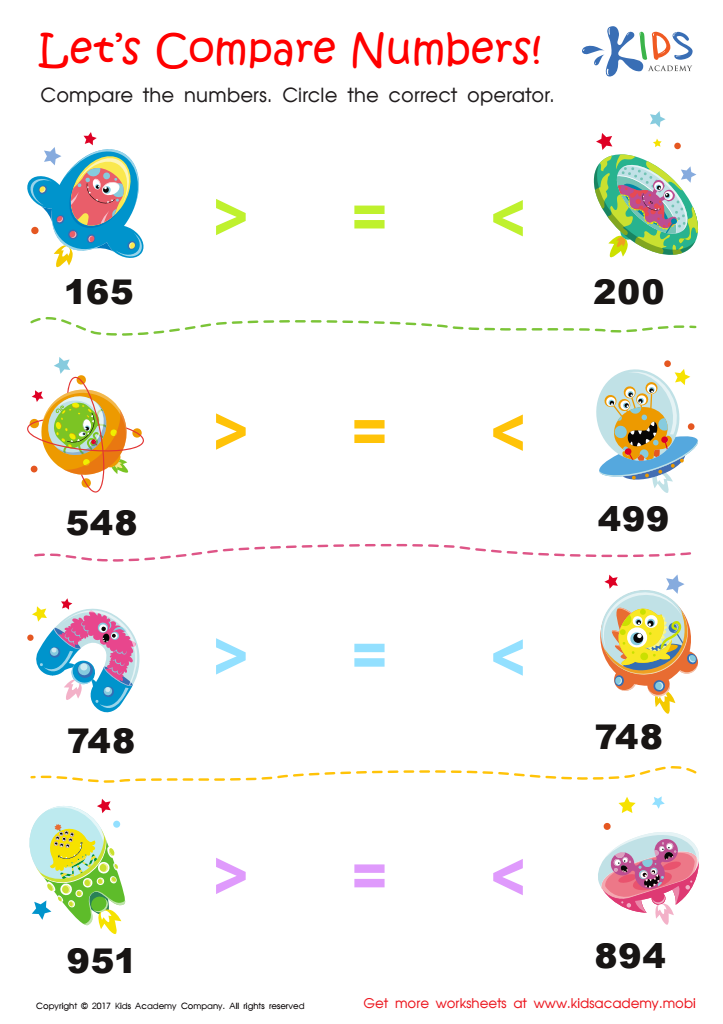

Comparing Numbers Worksheet for 2nd Grade
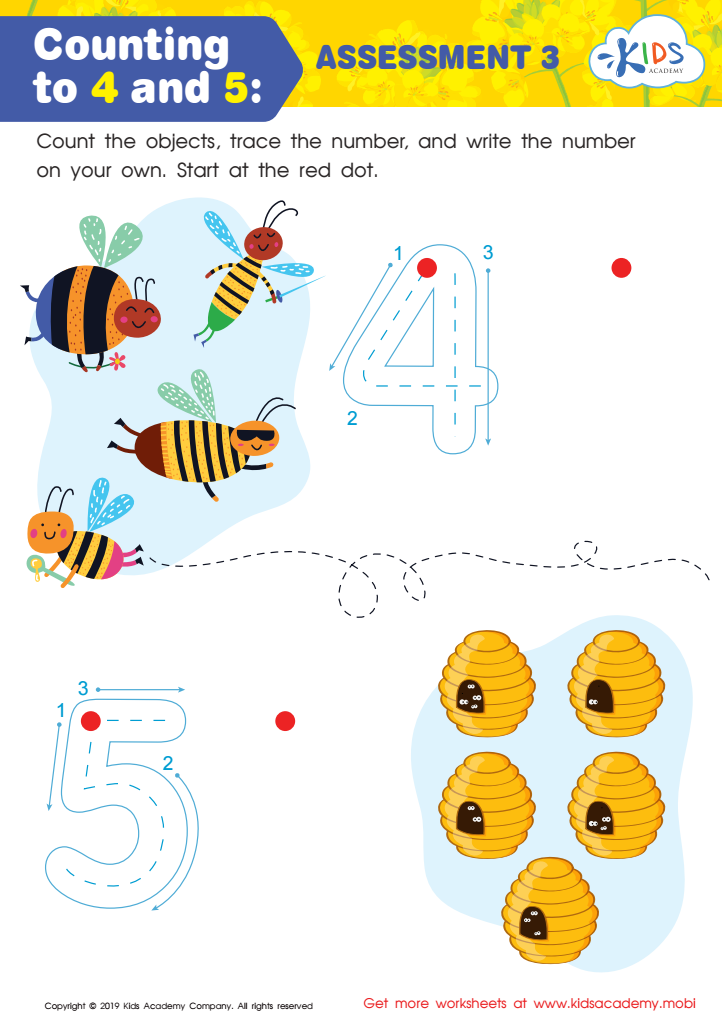

Counting to 4 and 5: Assessment 3 Worksheet
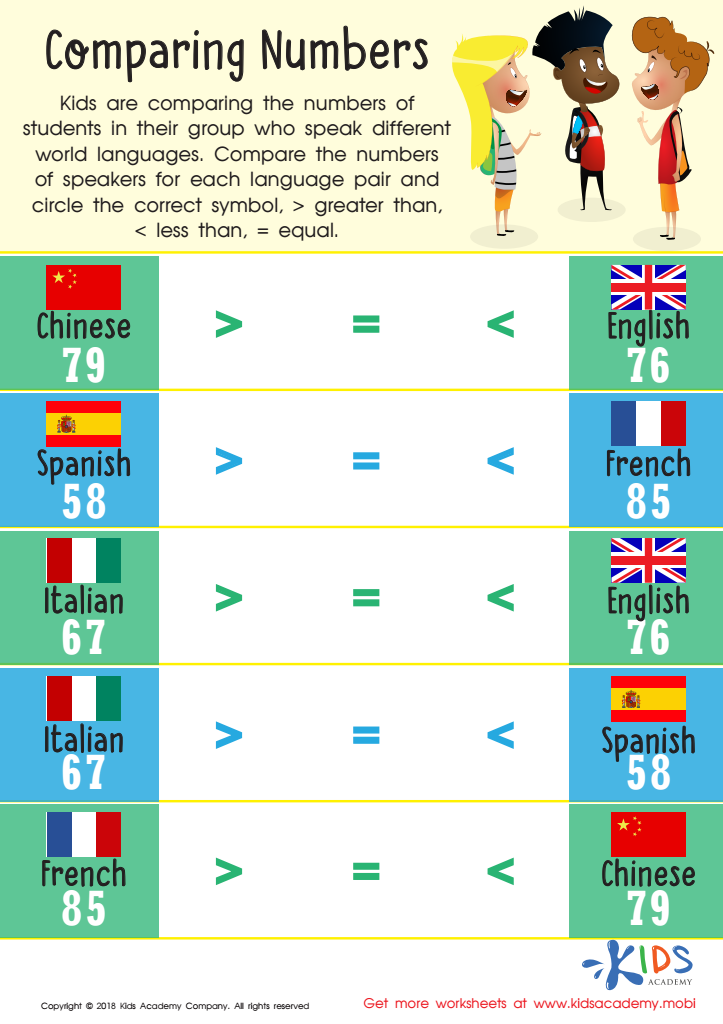

Comparing Numbers Worksheet for 1st Grade
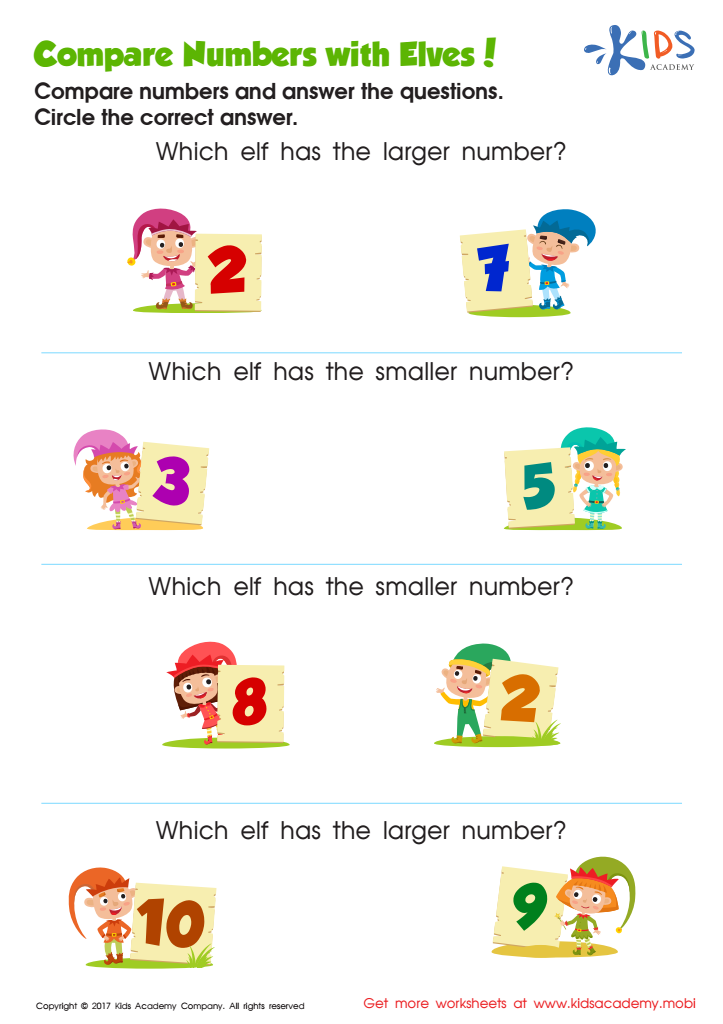

Comparing Numbers Worksheet for Kindergarten
Number comparison skills are fundamental for children aged 6-8, as they form the foundation for mathematical understanding. During this developmental stage, children begin to grasp the concepts of quantity, value, and numerical ordering. Teaching young learners how to compare numbers enhances their ability to recognize greater and lesser values, laying the groundwork for future topics such as addition, subtraction, and even basic algebra.
When parents and teachers prioritize number comparison skills, they empower children to better understand their world. For example, by comparing the number of apples in two groups, children can visually and tangibly grasp the concept of more or less. Proficiency in these skills not only boosts mathematical competence but also strengthens critical thinking and problem-solving capabilities.
Furthermore, early exposure to number comparison within engaging and playful contexts—like games and hands-on activities—fosters a positive attitude towards math and learning. As children learn to confidently compare numbers, they build self-esteem and motivation. Overall, focusing on number comparison during these formative years helps instill a love for math, enhances cognitive development, and sets the stage for academic success in mathematics and beyond. Both parents and teachers play crucial roles in nurturing these essential skills at this vital stage.
 Assign to My Students
Assign to My Students





















